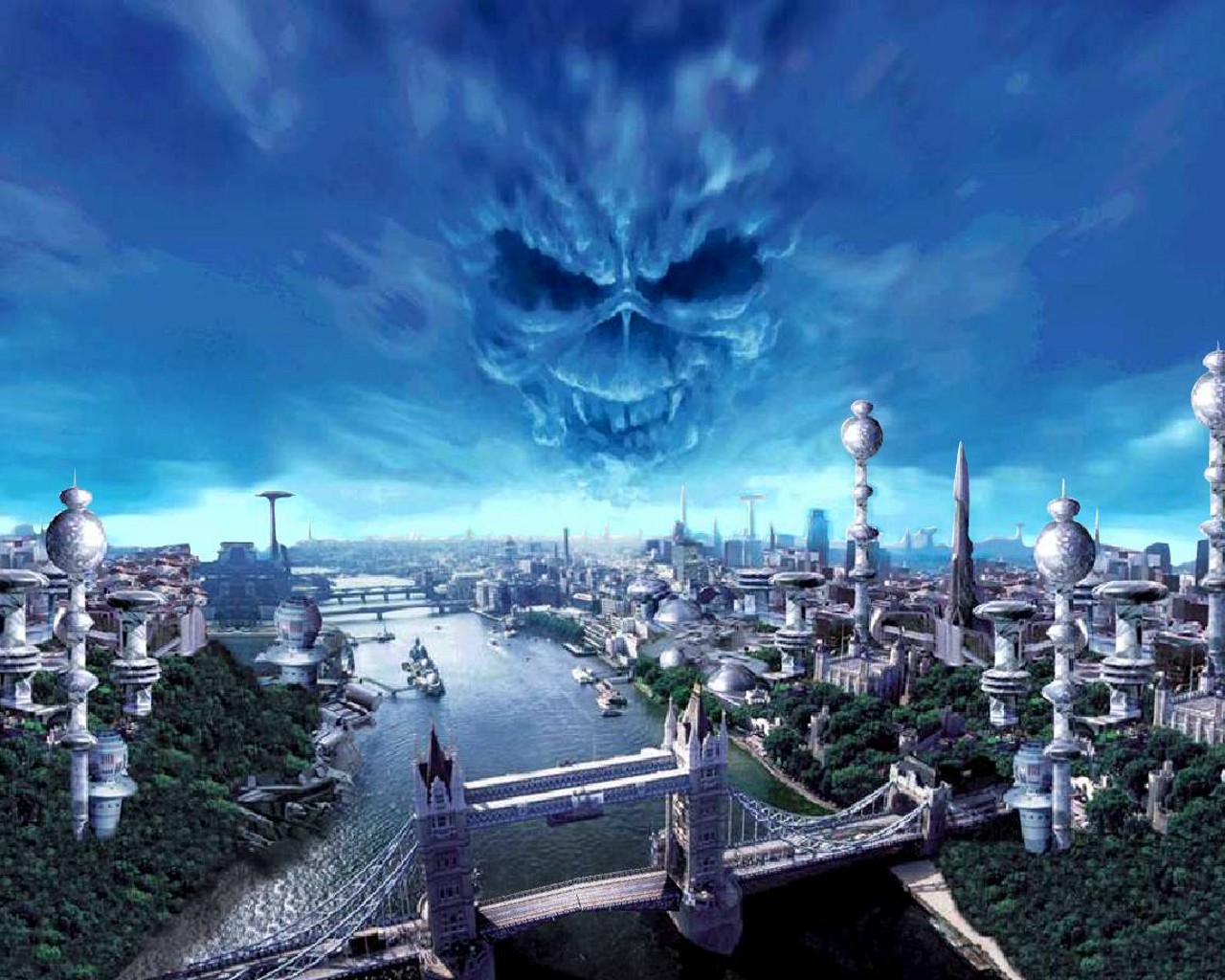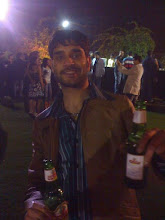I had been sitting alone with books,
Till doubt was a black disease,
When I heard the cheerful shout of rooks
In the bare, prophetic trees.
Bare trees, prophetic of new birth,
You lift your branches clean and free
To be a beacon to the earth,
A flame of wrath for all to see.
And the rooks in the branches laugh and shout
To those that can hear and understand:
"Walk through the gloomy ways of doubt
With the torch of vision in your hand."
Vision, Aldous Huxley
Till doubt was a black disease,
When I heard the cheerful shout of rooks
In the bare, prophetic trees.
Bare trees, prophetic of new birth,
You lift your branches clean and free
To be a beacon to the earth,
A flame of wrath for all to see.
And the rooks in the branches laugh and shout
To those that can hear and understand:
"Walk through the gloomy ways of doubt
With the torch of vision in your hand."
Vision, Aldous Huxley
Aldous Huxley’s Brave new world delivers exactly what the title promises: a glimpse into a brave new world. A world that is happy in its frolicking fornication and enjoys an absence of warfare and poverty. Mankind is healthy, technologically advanced and such no such qualms against existence. This is a utopia, albeit a moronic one and ay, there’s the rub.
Utopias are supposed to be perfect and faultless societies. The utopia presented in Brave New world is a society that satisfies both these characteristics. However, there is a basic flaw in the social order that made the society, set in AD 2540, seem a dystopia by the end of the novel. It is the truancy of Soul from this seemingly perfect world.
Now, Huxley was by no means a metaphysical goon keen on inflicting abstract ideas on the modern world. The term Soul in this celebrated work is best served chilled. Since there has been a purge of religion and family from this utopia, to them the term wouldn’t mean anything but to us, the readers reading this novel even seventy-four years after it was written, the term signifies not halos and spirits but rather a certain something that we cannot operate without. How we come by this certain something is not made clear in the novel, as it’s not in our very own century as well; all that is made crystal-clear is that this utopia lacks it.
The story begins with a quick introduction to the times as they are in the “year of our Ford 632”. The world has drastically changed pertaining to all social orders. War, poverty, unhappiness, crime, disease…everything has been eradicated to bring along a homogeneous high-tech world. New social, economic and political ideologies have been constructed in tune with the codes of Henry Ford. It is for the same reason that everything that that is relevant to our Lord at present, is referred to as our Ford in this future. To this world he cuts a Messianic figure.
Sexual gambolling is completely promiscuous and orgies are practised as a ritual. The social ladder consists of five classes and all members are trained to be good consumers so as to keep the economy strong. A hallucinogen, Soma, keeps people mechanically happy as they are encouraged to sedate themselves with tablets of the drug. Everything is picture perfect.
Here we are introduced to the protagonists Lenina Crowne and Bernard Marx, the former a Beta-plus and the latter an Alpha-plus. Bernard is quite fond of Lenina but is hesitant of physical approaches because he is physically quite small for an Alpha. This has made him have a different outlook to society and a tendency to spend time by himself or with a friend, Helmholtz Watson, who is an intellectual in his equal. Bernard manages to take Lenina along with him to a savage reservation in New Mexico in America.
It is here, in the savage reservation, that we are introduced to John the Savage. The Malpais savage reservation is a place, much to their interest, a society deemed ancient by the World State (the unified government force controlling the whole of Earth) and is thus fenced and ignored. In this reservation, the pair meets Linda and her son, John. Linda was a previous World State citizen but on a visit to the reservation had an accident which saw her living there lastingly. She gave birth to John there upon chance sexual relations with some of the savages. John is a social outcast in the reservation because none of the other savages want anything to do with him due to his colour. Hence, he stayed with Linda and received education in the form of the complete works of Shakespeare and some other reading. Bernard is quite fascinated by John’s upbringing and his intellect streaks and takes Linda and John back with them to London.
To say that John the Savage had a culture shock would be an understatement. As he entered this new world with its tall buildings and flying carriers, its vast and populated order…he feels just like Miranda who upon seeing different examples of mankind other than her father Prospero, and signs of life other than the island broke into a speech that is the underlying idea behind the novel:
Utopias are supposed to be perfect and faultless societies. The utopia presented in Brave New world is a society that satisfies both these characteristics. However, there is a basic flaw in the social order that made the society, set in AD 2540, seem a dystopia by the end of the novel. It is the truancy of Soul from this seemingly perfect world.
Now, Huxley was by no means a metaphysical goon keen on inflicting abstract ideas on the modern world. The term Soul in this celebrated work is best served chilled. Since there has been a purge of religion and family from this utopia, to them the term wouldn’t mean anything but to us, the readers reading this novel even seventy-four years after it was written, the term signifies not halos and spirits but rather a certain something that we cannot operate without. How we come by this certain something is not made clear in the novel, as it’s not in our very own century as well; all that is made crystal-clear is that this utopia lacks it.
The story begins with a quick introduction to the times as they are in the “year of our Ford 632”. The world has drastically changed pertaining to all social orders. War, poverty, unhappiness, crime, disease…everything has been eradicated to bring along a homogeneous high-tech world. New social, economic and political ideologies have been constructed in tune with the codes of Henry Ford. It is for the same reason that everything that that is relevant to our Lord at present, is referred to as our Ford in this future. To this world he cuts a Messianic figure.
Sexual gambolling is completely promiscuous and orgies are practised as a ritual. The social ladder consists of five classes and all members are trained to be good consumers so as to keep the economy strong. A hallucinogen, Soma, keeps people mechanically happy as they are encouraged to sedate themselves with tablets of the drug. Everything is picture perfect.
Here we are introduced to the protagonists Lenina Crowne and Bernard Marx, the former a Beta-plus and the latter an Alpha-plus. Bernard is quite fond of Lenina but is hesitant of physical approaches because he is physically quite small for an Alpha. This has made him have a different outlook to society and a tendency to spend time by himself or with a friend, Helmholtz Watson, who is an intellectual in his equal. Bernard manages to take Lenina along with him to a savage reservation in New Mexico in America.
It is here, in the savage reservation, that we are introduced to John the Savage. The Malpais savage reservation is a place, much to their interest, a society deemed ancient by the World State (the unified government force controlling the whole of Earth) and is thus fenced and ignored. In this reservation, the pair meets Linda and her son, John. Linda was a previous World State citizen but on a visit to the reservation had an accident which saw her living there lastingly. She gave birth to John there upon chance sexual relations with some of the savages. John is a social outcast in the reservation because none of the other savages want anything to do with him due to his colour. Hence, he stayed with Linda and received education in the form of the complete works of Shakespeare and some other reading. Bernard is quite fascinated by John’s upbringing and his intellect streaks and takes Linda and John back with them to London.
To say that John the Savage had a culture shock would be an understatement. As he entered this new world with its tall buildings and flying carriers, its vast and populated order…he feels just like Miranda who upon seeing different examples of mankind other than her father Prospero, and signs of life other than the island broke into a speech that is the underlying idea behind the novel:
"O wonder!
How many goodly creatures are there here!
How beauteous mankind is!
O brave new world,
That has such people in it!"
However, John’s initial wonder and eventual loathing of this “Brave new world” of the Ford is a clever vehicle of mankind’s own state and the flaws of this utopia. Though he is a savage, John is well-versed in Shakespeare’s genius and human call, something which the pseudo-intellectuals of this new world don’t have a clue about. In their pursuit of human happiness, these World state citizens have forgotten how to be human. Their every thought and dream has been manipulated by the sleep-teaching of the state, their every inhibition is assaulted by Soma and their every desire is served on a platter. Such a world to John seems placid, artificial and “soulless”. It is quite remarkable that one of the only people who knows what the intellectuals of the older meant by ‘soul’ is a young savage.
This injection of the savage into the new world had a social advantage for Bernard as his peers become quite fascinated by the savages. However, John is not ready to become a showpiece from the past and overlooks them to chase his infatuation with Lenina. He soon discovers that Lenina’s promiscuous nature is hardly a turn-on to someone like him who had a different perception of love from such works as Romeo & Juliet.
In the last assortment of the plot, John’s mother Linda dies and this inspires a reaction from this Brave New World that was unexpected of it. In retaliation he does something heated and foolish which sees Bernard Marx and Helmholtz Watson exiled from London and John return to his isolation even in this world. However, there is a further tragic event in the story and an ending which at its highest height is the lowest low of this saga; a cowardly reaction to this brave world.
Huxley’s vision of the future was deemed quite unrealistic and fantasy-like but with the advent of human technology, this horror is reproducing to a society alike his moronic utopia. Already we have entire generations on prozac, tapes that teach you “inner-development” through sleeping tapes, a public that is only too interested in each other’s genitals and consumer gratification defying par. This farsighted utopia is not so far considering the brave and new manner in which it is directing itself. And that I think adds up to quite a terrifying tomorrow.
Iron Maiden tribute to the novel


No comments:
Post a Comment